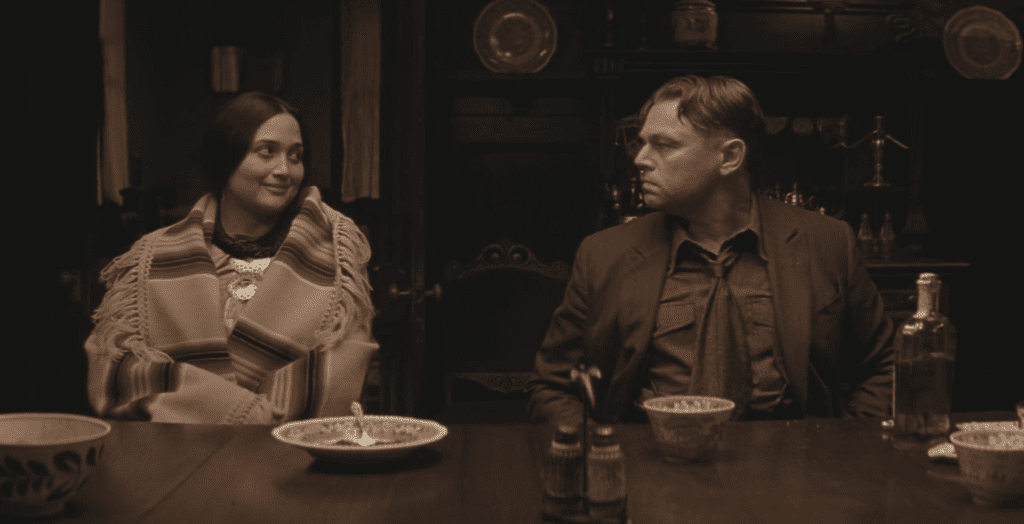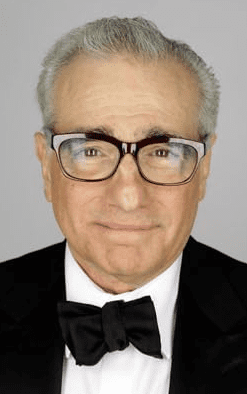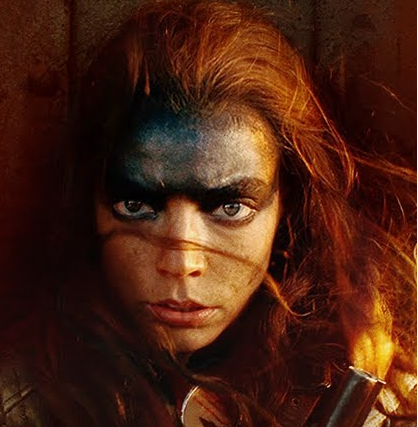Imagine a world without the iconic movies of Martin Scorsese. A world where films like “Goodfellas,” “Taxi Driver,” and “The Departed” never graced our screens. It’s a world that lacks the grit, the authenticity, and the raw power that only Scorsese’s cinematic genius can deliver. Scorsese has carved a name for himself as one of the greatest directors of all time, consistently pushing the boundaries of storytelling and captivating audiences with his masterful craft.

In this blog post, we will dive deep into the brilliance of Martin Scorsese’s best movies, exploring the reasons why his films stand the test of time. From their impeccable storytelling to their unforgettable characters, we will dissect the elements that make Scorsese’s movies truly exceptional. But we won’t stop there – we will also examine the director himself, delving into his unique directorial style and the impact he has left on the world of cinema.
Table of Contents
Through an in-depth review of each chosen film, we will uncover the nuances that have solidified Scorsese’s place in film history. We will explore the themes and motifs that run through his body of work, as well as the techniques he employs to create an immersive and unforgettable viewing experience.
But this blog post is not just about analyzing Scorsese’s movies; it’s also an opportunity for you, the reader, to engage in the discussion. We will pose thought-provoking questions that will make you ponder the deeper meanings behind his films. So, get ready to embark on a journey through the mind of a cinematic genius – Martin Scorsese. Join us as we unravel the brilliance of his best movies, explore his unique directorial style, and tackle the questions that continue to linger in the minds of audiences worldwide.
The Iconic Films of Martin Scorsese: A Journey through Cinematic Brilliance
Martin Scorsese is a name that needs no introduction in the world of cinema. With a career spanning over five decades, Scorsese has created some of the most iconic and influential films in history. From crime dramas to historical epics, his movies have captivated audiences with their raw intensity, impeccable storytelling, and unforgettable characters.
Impeccable Storytelling: Unraveling the Narrative Genius of Scorsese’s Movies
One of the defining characteristics of Martin Scorsese’s films is his impeccable storytelling. Whether it’s the rise and fall of gangsters in “Goodfellas” or the exploration of guilt and redemption in “Taxi Driver,” Scorsese knows how to craft a narrative that keeps viewers on the edge of their seats.
Scorsese’s storytelling prowess lies in his ability to create complex and multi-dimensional characters. He delves deep into their psyche, exploring their motivations, flaws, and desires. This attention to detail allows audiences to form a deep connection with the characters, making their journeys all the more compelling.
Unforgettable Characters: Exploring the Depth and Complexity of Scorsese’s Protagonists
One cannot discuss Martin Scorsese’s films without mentioning the unforgettable characters he has brought to life on screen. From Travis Bickle in “Taxi Driver” to Henry Hill in “Goodfellas,” these characters have become cultural icons, leaving an indelible mark on cinema history.
What sets Scorsese’s characters apart is their depth and complexity. They are not simply black or white; they exist in shades of gray. They are flawed individuals who struggle with moral dilemmas, inner demons, and conflicting desires. It is this complexity that makes them so relatable and human.
Themes and Motifs: The Underlying Messages in Scorsese’s Body of Work
While Martin Scorsese’s films are known for their gripping narratives and unforgettable characters, they also explore deeper themes and motifs. From the exploration of violence and masculinity in “Raging Bull” to the examination of faith and redemption in “The Last Temptation of Christ,” Scorsese uses his films as a medium to tackle complex ideas.
One recurring theme in Scorsese’s work is the struggle between good and evil. His characters often find themselves torn between their moral compasses and their baser instincts. This exploration of the human condition adds layers of depth to his films, elevating them beyond mere entertainment.
Techniques and Visual Style: The Directorial Mastery of Martin Scorsese
Martin Scorsese is not only a master storyteller but also a visionary director. His use of camera movement, editing techniques, and visual style sets him apart from his peers. From the frenetic tracking shots in “Goodfellas” to the haunting slow-motion sequences in “The Departed,” Scorsese’s directorial choices enhance the storytelling experience.
Scorsese’s visual style is characterized by its energy, intensity, and attention to detail. He creates immersive worlds that transport viewers into the heart of his stories. Whether it’s the gritty streets of New York City or the glitz and glamour of Las Vegas, every frame is meticulously crafted to evoke a specific mood or emotion.
Impact on Cinema: How Scorsese Revolutionized the Film Industry
Martin Scorsese’s impact on cinema cannot be overstated. Throughout his career, he has pushed the boundaries of filmmaking, challenging conventions and redefining genres. His films have inspired countless filmmakers and left an indelible mark on the industry.
One aspect in which Scorsese has revolutionized the film industry is his use of music. He has a knack for selecting the perfect songs to accompany his scenes, creating iconic moments that are forever etched in our collective memory. From “Layla” in “Goodfellas” to “Gimme Shelter” in “The Departed,” Scorsese’s use of music elevates his films to another level.
Thought-Provoking Questions: Analyzing the Deeper Meanings in Scorsese’s Films
Martin Scorsese’s films often leave audiences with lingering questions and a desire for deeper analysis. They tackle complex themes and moral dilemmas that invite viewers to reflect on their own beliefs and values.
One thought-provoking question that arises from Scorsese’s body of work is: What is the nature of redemption? Many of his characters grapple with their past mistakes and seek redemption, but can they truly find it? This question challenges us to examine our own capacity for forgiveness and growth.
Audience Engagement: Joining the Discussion on Scorsese’s Cultural Legacy
Martin Scorsese’s cultural legacy extends far beyond his films. He has sparked countless debates and discussions among critics, scholars, and movie lovers alike. His work continues to resonate with audiences, prompting them to engage in conversations about art, morality, and the power of cinema.
As a viewer, it is important to actively participate in these discussions. By sharing your thoughts and insights on Scorsese’s films, you contribute to the ongoing dialogue surrounding his cultural impact. Your perspective adds richness and depth to the conversation, allowing for a more comprehensive understanding of his work.
Scorsese’s Legacy: Cementing His Place in Film History
Martin Scorsese’s legacy is firmly cemented in film history. His body of work has earned him numerous accolades, including multiple Academy Awards and Golden Globes. But beyond the awards and recognition, it is the enduring impact of his films that solidifies his place among the greatest directors of all time.
Scorsese’s films have stood the test of time, continuing to captivate audiences decades after their release. They have become cultural touchstones, influencing generations of filmmakers and shaping the cinematic landscape we know today. From his early works like “Mean Streets” to recent masterpieces like “The Irishman,” Scorsese’s films will forever be celebrated as works of art.
Conclusion: Reflecting on the Enduring Brilliance of Martin Scorsese’s Best Movies
In conclusion, Martin Scorsese is a true cinematic genius whose brilliance shines through in every frame of his best movies. From his impeccable storytelling to his unforgettable characters, he has left an indelible mark on cinema history.
Through thought-provoking questions and engaging discussions, we can delve deeper into the meanings behind Scorsese’s films and appreciate the lasting impact they have had on audiences worldwide. So let us celebrate Martin Scorsese’s cultural legacy and continue to explore the depths of his cinematic brilliance.

Early life and work
Martin Scorsese was born on November 17, 1942, in Queens, New York City. He developed a passion for cinema at a young age and attended New York University’s Tisch School of Arts to study film.
Ten best movies
Choosing the ten best movies from Martin Scorsese’s extensive filmography is no easy task. However, there are a few films that have become synonymous with his name and are widely regarded as his masterpieces.
1. “Taxi Driver” (1976): This psychological thriller stars Robert De Niro as Travis Bickle, a disturbed Vietnam War veteran who becomes a taxi driver in New York City. The film explores themes of alienation, violence, and urban decay.
2. “Goodfellas” (1990): Based on the true story of mobster Henry Hill, played by Ray Liotta, “Goodfellas” is a gripping crime drama that delves into the world of organized crime in New York City.
3. “Raging Bull” (1980): Starring Robert De Niro as boxer Jake LaMotta, “Raging Bull” is a raw and visceral portrayal of self-destruction and redemption. The film won two Academy Awards, including Best Actor for De Niro.
4. “The Departed” (2006): This crime thriller follows an undercover cop played by Leonardo DiCaprio as he infiltrates an Irish gang in Boston. With its twists and turns, “The Departed” keeps viewers on the edge of their seats until the very end.
5. “Mean Streets” (1973): Considered Scorsese’s breakthrough film, “Mean Streets” explores the lives of small-time criminals in New York City’s Little Italy neighborhood. It stars Harvey Keitel and Robert De Niro.
6. “Casino” (1995): Set in Las Vegas during the 1970s, “Casino” tells the story of Sam Rothstein, played by Robert De Niro, a casino executive with ties to the mob. The film is a sprawling epic that delves into the dark underbelly of the gambling industry.
7. “The Wolf of Wall Street” (2013): Based on the true story of Jordan Belfort, played by Leonardo DiCaprio, “The Wolf of Wall Street” is a dark comedy that explores the excesses and corruption of Wall Street in the 1990s.
8. “Gangs of New York” (2002): Set in 19th-century New York City, “Gangs of New York” follows Amsterdam Vallon, played by Leonardo DiCaprio, as he seeks revenge against Bill the Butcher, portrayed by Daniel Day-Lewis.
9. “Shutter Island” (2010): This psychological thriller stars Leonardo DiCaprio as a U.S. Marshal investigating the disappearance of a patient from a mental institution located on Shutter Island.
10. “The Irishman” (2019): Scorsese’s most recent film, “The Irishman,” reunites him with Robert De Niro and tells the story of Frank Sheeran, a mob hitman involved in organized crime and labor union activities.
What is the most influential film for Martin Scorsese?
Martin Scorsese has cited various films as influential throughout his career. One film that stands out is Federico Fellini’s “8½.” Scorsese has often spoken about how this film inspired him and influenced his approach to storytelling and visual style.
What specifically does Martin Scorsese mean when he says Give cinema some respect?
When Martin Scorsese says “Give cinema some respect,” he is advocating for recognizing cinema as an art form worthy of serious consideration and appreciation. He believes that cinema should be treated with the same level of respect and critical analysis as other art forms, such as literature or painting.
Is Martin Scorsese an overrated director?
The question of whether Martin Scorsese is an overrated director is subjective and open to interpretation. While some may argue that his acclaim is well-deserved due to his contributions to cinema, others may have differing opinions based on personal taste or preferences.
In which aspect did Martin Scorsese change the cinema industry?
Martin Scorsese has made significant contributions to the cinema industry in various aspects. One notable aspect is his use of music in film. Scorsese’s films often feature carefully curated soundtracks that enhance the storytelling and create memorable cinematic moments.
How does Martin Scorseses use of camera movement contribute to the storytelling in his films?
Martin Scorsese’s use of camera movement is a crucial element in his storytelling technique. He employs various techniques such as tracking shots, long takes, and dynamic camera movements to create a sense of immersion and enhance the emotional impact of a scene.
For example, in “Goodfellas,” Scorsese uses long tracking shots to follow characters through crowded spaces, giving viewers a visceral experience of being part of their world. This technique creates a sense of urgency and tension, drawing audiences deeper into the narrative.

Why does Martin Scorsese cast Robert De Niro and Leonardo DiCaprio so much?
Martin Scorsese has collaborated with actors Robert De Niro and Leonardo DiCaprio on multiple occasions because he believes they bring out the best in each other. Both actors have a deep understanding of Scorsese’s vision and are able to embody complex characters with nuance and authenticity.
De Niro and Scorsese’s partnership dates back to “Mean Streets” in 1973, and they have continued to work together on several films, forming a creative synergy that has resulted in some of cinema’s most memorable performances. Similarly, Scorsese has found a similar creative connection with DiCaprio, leading to their successful collaborations on films like “The Departed” and “The Wolf of Wall Street.”
Why is director Martin Scorsese considered a genius?
Martin Scorsese is considered a genius by many due to his exceptional talent for storytelling, his mastery of cinematic techniques, and his ability to create films that resonate with audiences on an emotional level.
Scorsese’s films are known for their depth, complexity, and attention to detail. He tackles challenging themes with intelligence and nuance, pushing the boundaries of what cinema can achieve. His directorial choices are always purposeful and serve the story he wants to tell.
Did Martin Scorsese go to film school?
Yes, Martin Scorsese attended New York University’s Tisch School of Arts where he studied film. It was during his time at NYU that he honed his craft as a filmmaker and developed his unique style.
What is your opinion on Martin Scorsese stating that Marvel films are not cinema?
Martin Scorsese’s statement about Marvel films not being cinema sparked a significant debate within the film industry. While opinions may vary, it is important to recognize that Scorsese was expressing his personal perspective as an artist with a deep appreciation for traditional filmmaking.
Scorsese believes that cinema should prioritize storytelling over spectacle and that Marvel films often prioritize visual effects and action set pieces over character development and thematic depth. However, it is essential to acknowledge that cinema is a diverse art form with room for different styles and genres.
Why does Martin Scorsese get upset by independent films being labeled as Indies?
Martin Scorsese’s frustration with independent films being labeled as “indies” stems from his belief that the term has become too broad and encompassing. He feels that it fails to capture the diversity and artistic range of independent cinema.
Scorsese believes that independent films should be recognized for their unique voices, innovative storytelling, and willingness to take risks. By labeling them simply as “indies,” he argues that it diminishes their individuality and impact within the film industry.
https://7artmovie.com/killers-of-the-flower-moon-3/
https://7artmovie.com/killers-of-the-flower-moon-1/
https://7artmovie.com/goodfellas-cinematic-masterpiece-1/
https://7artmovie.com/goodfellas-answers-part-1/
https://7artmovie.com/goodfellas-answers-2/
https://www.imdb.com/name/nm0000217/?ref_=tt_ov_dr





